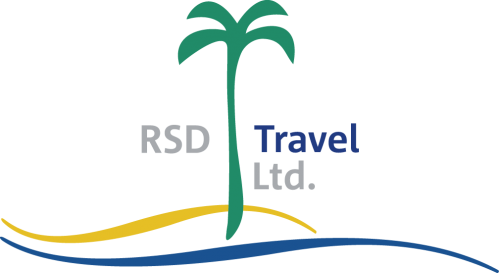Information on Bulgaria
Comparison of temperatures
| Jan | Feb | Mar | Apr | May | Jun | Jul | Aug | Sep | Oct | Nov | Dec |
| Sofia | 2 | 4 | 9 | 16 | 20 | 24 | 25 | 26 | 23 | 15 | 9 | 3 |
| London | 6 | 8 | 9 | 11 | 15 | 20 | 21 | 20 | 19 | 15 | 10 | 7 |
General note:
Below is an information overview. The conditions of entry, as well as the political and health situation, can change anywhere in the world at any time. We therefore recommend checking the website of the Foreign Office (www.gov.uk) before your departure.
Geography:
Bulgaria is located in the east of the Balkan Peninsula
Form of government:
Parliamentary republic
Capital:
Sofia (about 2.4 million inhabitants)
Religion:
Predominantly Christians
Language:
Bulgarian
Climate:
Continental climate in the north of the country, alpine climate in the west and the mountain ranges, and in the southeast it transitions into a Mediterranean climate.
Local time:
In Bulgaria, Eastern European Time UTC+3 is observed with daylight saving time changes. The time difference to the UK is +2 hours all year round.
Electricity:
230 Volt Alternating Current, 50 Hertz. An adapter is required.
Making telephone calls:
The dialling code for long-distance calls from the UK to Bulgaria is 00359 (+359). For calls to the UK, one dials 0044 (+44) first. The 0 before the area code is omitted each time.
Country and people:
Art has a long tradition in the region of Bulgaria. Numerous Thracian burial mounds and goldsmith works have been preserved from the 2ⁿᵈ millennium BC. Bulgaria boasts a rich tradition in choral singing. The state choir has achieved great success through its unique style and is internationally renowned today. The Bulgarian national instrument is, alongside the three-part longitudinal flute Kaval, the bagpipe Gaida.
Entry requirements for British citizens:
If you are planning to travel to an EU country you must meet the Schengen area rules. Your passport must meet two requirements. It must be:
• Less than 10 years old on the day you enter (check the ‘date of issue’)
• Valid for at least 3 months after the day you plan to leave (check the ‘expiry date’)
You can travel to countries in the Schengen area for up to 90 days in any 180-day period without a visa. Check your passport is stamped if you enter or exit the Schengen area through Buglaria as a visitor. Border guards will use passport stamps to check you are complying with the 90-day visa-free limit for short stays in the Schengen area. If relevant entry or exit stamps are not in your passport, border guards will presume that you have overstayed your visa-free limit.
Nationals of other countries are advised to enquire at the Bulgarian Embassy about the entry requirements applicable to them. Whilst we endeavour to provide guidance where necessary, we can not be responsible for any problems encountered (whether at any point of entry or elsewhere) in the event that passport and visa requirements are not satisfied. For more information, please visit https://www.gov.uk/foreign-travel-advice/.
Plans for the introduction of the new EU Entry / Exit System (EES) for all non-EU nationals has been delayed. It is expected to start in October 2025. Information will be updated when available. ETIAS will start operations in the last quarter of 2026. No action is required from travellers at this point (https://travel-europe.europa.eu/).
Tour guides:
Your tour guides will be able to provide you with detailed information on the country, people, history, culture etc., and offer advice and assistance in organising your trip. They can also help with room allocation and look forward to welcoming you with initial information. Here you will find out all you need to know and useful information about the trip.
We have put together a varied programme including numerous highlights, enabling you to experience the culture and diversity of landscape that Bulgaria has to offer, and learn all about the country and its people.
Additional packages:
Although your trip already includes a comprehensive package, you also have the option of choosing added extras. We recommend booking the following packages:
Half board: The package includes 7× evening 3-course menu in the hotel or local restaurant: only £199 per person.
Explorer Package: The package includes guided city tours in Sofia, Plovdiv, Varna, and Veliko Tarnovo, as well as admission to the ancient theatre of Plovdiv, the archaeological museum, the necropolis & the cathedral in Varna, the Tsarevets fortress, and the ‘Nativity of Christ’ church: only £139* per person.
* Package prices may vary when booking on site.
Currency / Banks / Credit Cards:
The unit of currency is the Lev (BGN). 1 BGN = 100 Stotinki. Exchange rate (as of March 2025): 1 GBP = 2.32 BGN; 1 BGN = 0.43 GBP.
In tourist areas as well as in major cities, there are ample cash machines where money can be withdrawn in local currency using a debit card or credit card. The daily withdrawal limit of Bulgarian cash machines is 400 BGN (approx. 170 GBP). Most home banks charge a foreign transaction fee per withdrawal. Please inform yourself before your trip.
Customs regulations:
The import and export of sums from 10,000 EUR (approx. £8,400) must be declared in writing to the Bulgarian customs authorities. For coins of archaeological, historical or numismatic value and objects under monument protection, an export certificate from the Ministry of Culture must be presented. The customs regulations for British nationals can change at short notice. Therefore, please inquire in advance with the representations of your destination country.
Important: If you are travelling to Great Britain from outside the UK, your personal allowances mean you can bring in a certain amount of goods without paying tax or duty. If you go over your allowances you must declare all your goods and pay tax and duty on all the goods in that category. Please inform yourself about the current customs regulations: www.gov.uk/bringinggoods-intouk-personal-use/arriving-in-Great-Britain.
Country-specific safety advice:
Due to its location in a seismically active zone, earthquakes can occur. Petty crime such as pickpocketing is particularly prevalent in busy areas such as airports and train stations, as well as in places heavily frequented by tourists. Good preparation and sensible behaviour can significantly reduce the likelihood of becoming a victim of crime. The following precautions are recommended:
• Always carry a mobile phone.
• Do not flaunt your valuables; if possible, avoid large, valuable handbags.
• Prefer cashless payments and only carry the cash needed for the day and no unnecessary valuables.
• When visiting publicly accessible parks and well-known attractions, avoid secluded hiking trails and deserted areas. To reduce the risk of attacks, trips should only be undertaken in groups.
Special criminal provisions:
In the event of non-compliance with declaration obligations, the entire imported or exported amount will be confiscated without compensation for the benefit of the Bulgarian state. In addition, fines may be imposed. Against foreigners who are accused of a criminal act in Bulgaria, the Bulgarian authorities can impose a travel ban, which is usually maintained for the entire duration of the investigation.
Medical information:
At least 8 weeks before your trip, check the latest country-specific health advice from the National Travel Health Network and Centre (NaTHNaC – https://travelhealthpro.org.uk/countries) on the Travel HealthPro website. Each country-specific page has information on vaccine recommendations, any current health risks or outbreaks, and factsheets with information on staying healthy abroad.
Diarrhoeal diseases: By adhering to the following hygiene rules, most diarrhoeal diseases can be avoided: Drink only water of a safe origin, e.g. bottled water, never tap water. When on the move, use drinking water for washing dishes and brushing teeth. For food, the rule is: cook, peel yourself or disinfect. Absolutely keep flies away from your food. Wash your hands as often as possible with soap, but always after using the toilet and always before preparing food and before eating.
Rabies: In Bulgaria, cases of rabies occasionally occur. Vaccination provides reliable protection against the disease. Avoid contact with stray animals.
Medical care:
The medical care is not comparable to that in the UK. Although the training of doctors at the major hospitals is generally good, there is often a lack of modern medical equipment. Many of the medications common in the UK are available in Bulgarian pharmacies; nevertheless, individuals who rely on regular medication intake should bring their own. Foreign patients generally have to pay the costs for medical treatment on the spot in cash. It is pointed out that the costs for medical treatment of foreigners can be relatively high. Insistence on the issue of a formal invoice/receipt should definitely be made.
It is recommended to take out international health insurance with the option of medical repatriation to the UK.
Customers must ensure that they are in good physical and mental health in line with the trip in question. Customers must enquire about the physical mobility and psychological autonomy required for this trip.
All information is subject to change/Last updated: March 2025
back Information & tips
 Travel highlights
Travel highlights
 Europe
Europe
 Asia
Asia
 America
America
 Africa
Africa
